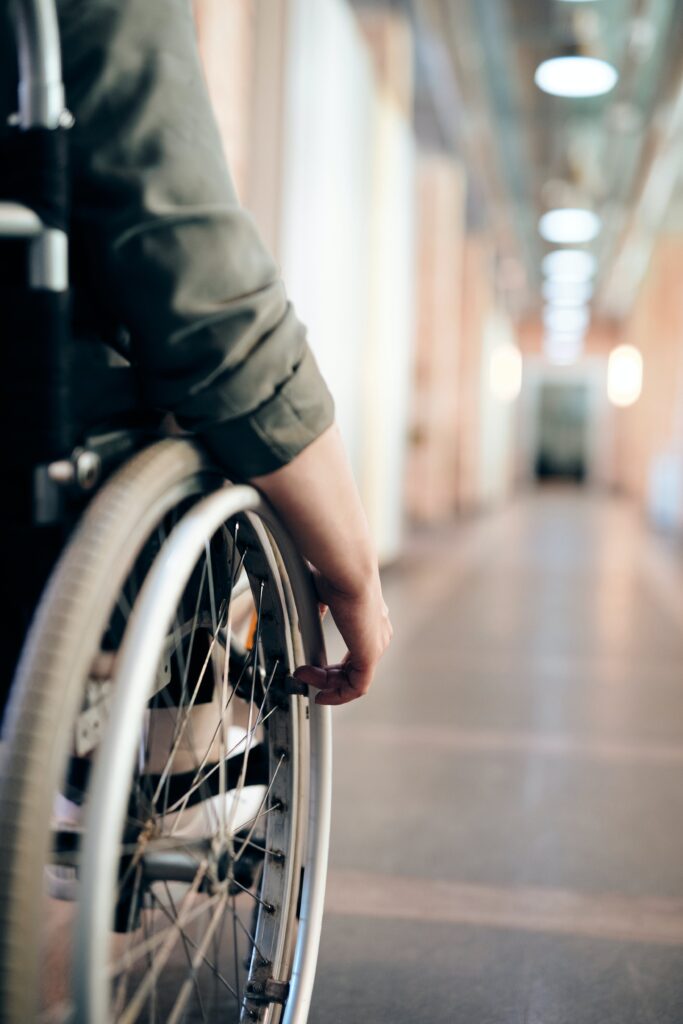LeaAnn: Aphasia and Apraxia
Speechless: Traumatic brain injury, Aphasia and Apraxia
I always start my story with “I went to sleep as myself and woke up a total stranger.”
On September 2014 Labor day I suffered a bleeding stroke and brain aneurysm which led to brain surgery to relieve the pressure on my brain. This was due to a blood disease I caught in my heart after some routine dental surgery. The doctors told my family that If I survived, I would never be the same. After 3 months of learning how to walk, talk, chew, swallow, read and write all over again, kidney failure due to antibiotics I was in for the blood disease, the doctors were right about one thing. I will never be the same.
What is Apasia?
Aphasia is a language disorder that negatively affects a person’s ability to talk, understanding the spoken word, and difficulties reading and writing. Aphasia originally comes from the Greek word “Aphatos” which means Speechless. Aphasia is a symptom that results from a pre-existing brain damage such as Alzheimer’s disease or a stroke. Over 30% of stroke victims are suffering from aphasia to some degree.
I have struggled with Dyslexia most of my life. My family was concerned about how my brain injury would affect my learning disorder. As with many survivors I was given so little information on traumatic brain injuries, or even that I had one. I knew that I had frontal lobe damage but that’s about all we knew. For four years I have researched everything I could find on brain injuries. With the help of Facebook and Pinterest I stumbled upon Aphasia and Apraxia.
After four long years and lots of tears, I have finally found cognitive therapy, occupational and physical therapy. Diagnosed with a TBI, Aphasia and Apraxia and more wasn’t exactly good news,but I finally have some answers. I found that aphasia is a result from damage to the portions of the brain responsible for language, for most, these areas in the left side (hemisphere) of the brain. Aphasia actually occurs very suddenly, often as a result of a stroke or a traumatic brain injury. It may also develop slowly as in the cases of a brain tumor, infection or dementia.
Aphasia impairs the expression and understanding of language as well as reading, much like my struggles with Dyslexia as I was growing up. With a side of aphasia and Apraxia, grammar, reading and language in general have been a challenge to say the least. Aphasia may co-occur with speech disorders such as dysarthia or Apraxia of speech which also is a result of brain damage.
Aphasia is caused any of these of the brain or neural pathways connecting them are damaged. This can result in the following: Stroke,Traumatic brain injury, Parkinsons, Alzheimer’s, migraine, brain tumor, and epilepsy.
A person with aphasia may speak in short or incomplete sentences.
Speak in sentences that don’t make sense. (My daughter always says ” say what you mean mom. “) we had no idea why I couldn’t.”
Speak unrecognizable words.
Unable to comprehend others conversations
Interpret figurative language literally.
Write sentences that don’t make sense.
The severity of the problems really depend on the extent of damage and the area of the brain that was affected.Some, like myself may be able to speak pretty well, but we struggle to find words to speak.
There are three categories of aphasia your doctor may refer to.
Non-fluent, fluent, and global. These describe what part of the brain was damaged and how communication is usually affected.
Non-fluent Aphasia. With This type, speech may be slower and hesitant, the survivor also struggles to get their words out, sentences are rarely completed, and through some words are missing, what they are saying can be made sense of. Again, ability of writing is usually the same as speech, but comprehension is good.
This is damage to the language network near the near the left frontal area of the brain. This usually results in Brocca Aphasia. Also called Non-fluent Aphasia. Survivors with this form of aphasia struggle to get words out, speak in very short sentences and leave words out, such as “want drink” or “walk today.” Someone with Brocca Aphasia may be able to comprehend what others say to Some degree. It’s easy to get frustrated with the limitations.
Fluent Aphasia – speech is difficult, not possible to understand. The ability to speak is not impaired, but the words someone with fluent aphasia speaks make no sense. Writing is affected in the same way. Writing is flowing but makes no sense.
Communicating with someone such as myself with aphasia – Keep it simple. Speak in short, simple sentences.
* Be patient allow plenty of time for us to respond. Talk with us, not for us.
* Remove any distractions, turn off TV, radio, etc.I
* Be creative, try writing gesturing, pictures and other tools, such as an ipad
* confirm: repeat back what what you think he\she is saying.
If you have aphasia: – Take your time: remember it may take awhile to get the words out.
* Let people know what works best for yoy: Do you like to use props? Do you want a question asked in multiple ways? Let them know. Getting frustrated is ok: don’t blame yourself if you get stuck or stumble on your words.
* Use assistive devices, bring photos, I carry a notebook, photos, assistive devices etc.
You can learn more at strokeassociation.org and aphasia.org.
Struggles with grammar and compression of words have followed me ever since I was diagnosed with Dyslexia when I was in grade school. With the addition of a stroke brain aneurysm and brain surgery, my grammar, speech and understanding language has taken its toll. I am always shocked when I hear a brain injury survivor and someone with aphasia and Apraxia put down for their grammar.I
Recently, after posting a brain injury meme that lightly likes fun at my grammar, I received, from a brain injury survivor criticism about my atrocious, grammatically incorrect grammar. Granted, I didn’t write the meme, but after witnessing other survivors take a lot of punches for their grammar I decided this blog was necessary.I
Apraxia: sometimes called verbal Apraxia of speech, or acquired Apraxia of speech, is a motor speech disorder which means that the problem arises from poor motor coordination. Someone with Apraxia has trouble with the muscle control that is needed to form words.
Apraxia of speech, also know as verbal Apraxia or dyspraxia is when a person has trouble saying what they want to say correctly and consistently. It is not due to the weakness of paralysis of the speech muscles. The severity of Apraxia of speech can range from mild to severe.
The cause of apraxia: Aquired Apraxia is caused by damage to the brain. When a TBI causes damage to go the areas of the brain that controls movement. Apraxia can also be caused by dementia, progressive neurological disorders, and brain tumors. However, the most common cause of Apraxia in adults is stroke. Sometimes, a person who develops apraxia, may also develop aphasia.
Much like aphasia, a person’s intelligence is not affected with the addition acquired Apraxia. While the survivor understands what they are trying to say, their brain cannot properly manipulate structures ( tounve, palate, etc.) necessary for speech. The symptoms of Apraxia can range from mild to severe. It is very frustrating for survivors When we cannot speak the words properly. The survivor suffering from Apraxia may produce nonsense words that sound similar, but have a very different meaning to the words spoken. For example: I often say ” mouse” instead of “house.”
those of us with apraxia tend to use strings of words, or what’s called automatic speech, more easily than spontaneous speech. Sometimes, if I want to wear my red shirt or blue shirt, I have trouble verbalizing my choices.
Those with severe Apraxia may be unable to produce any sounds at all. Otherwise, those suffering from Apraxia will typically display a slow rate of speech. Your loved ones, much like mine did, may notice that you struggle of grope to produce the correct words. When I am asked to repeat words and sounds that someone else verbalizes, I almost always struggle with imitating them.
Many of pencils, books and anything else within my grasp have been tossed in frustration across the room. A reaction that is understandable, but in my experience does not change my situation. Let your survivor take their time have patience with yourself. Occupational therapy has been extremely helpful, and if possible I highly recommend.
Never judge a book by its cover or a person with grammatically incorrect grammar or speach. There are also many learning disorders that cause difficulties with speech and grammar. Dyslexia being one of many. Put the three together and I often suspect the grammar police to take me away!
Thank you for reading. I welcome your mind comments and thoughts. Thank you to the stroke and Apraxia association and the stroke and aphasia association for the information I found in my research.

